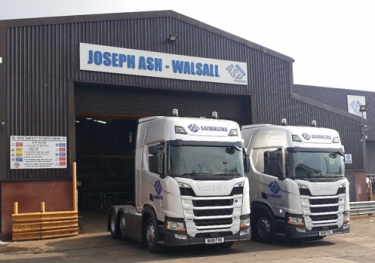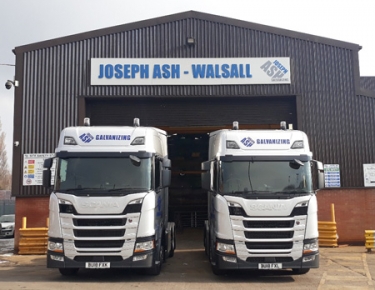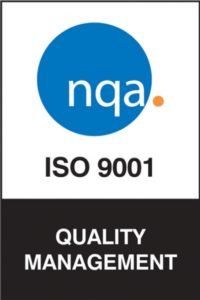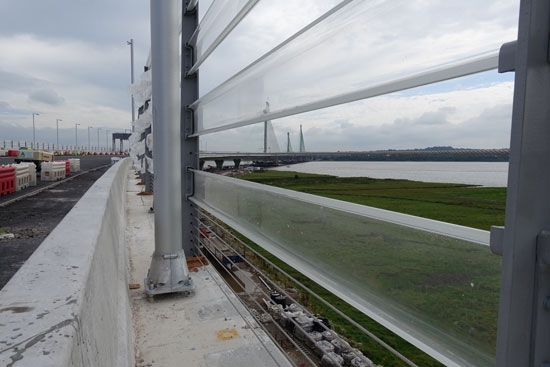March 2018 newsletter

Welcome to the latest Joseph Ash Galvanizing newsletter. Hot off the press!
To read a copy click here.
If you would like to receive a copy of the newsletter in your inbox each month, please subscribe by scrolling to the bottom of the page and looking for the ‘Newsletter Sign-Up’ button.
We’re always looking for interesting articles in the steel industry too, so feel free to get in touch with your news, and we’ll try to feature it.

Celebrating 40 and 25 year anniversaries at Joseph Ash Galvanizing for Dalit Singh and John Eyre.
In 1978 the first test tube baby was born; the first mobile phone was introduced in Illinois; and Grease appeared at the cinema. This is the year that Dalit Singh joined Joseph Ash Galvanizing. Fast forward four decades and he is still here! What an achievement.
Dalit first started his job with Walker Brothers Galvanizing, which was taken over by Hill & Smith, Joseph Ash Galvanizing’s parent company. His first job was in Jigging Materials, and he then moved to become a Pot Man. For the past 12 years he has been a Shift Supervisor at the Joseph Ash Walsall plant.
The news doesn’t stop there though! This month we’d also like to mention John Eyre who has also reached a 25 year milestone at Joseph Ash Chesterfield. John joined our Chesterfield plant in 1993, and can do pretty much every job in the plant (including driving a fork lift truck). Since May 2017 John has been the Shift Foreman at Chesterfield.
Both men have been very loyal workers and key team members in their respective plants. Congratulations to you both!

Please note that all Joseph Ash Galvanizing plants will be closed during the Easter weekend. The plants will be closed from Good Friday (30 March) until Easter Monday and will re-open on Tuesday 3 April 2018.
Have a great holiday weekend!
From all the team at Joseph Ash Galvanizing.


New tractor units at Chesterfield and Walsall drive environmental initiatives for Joseph Ash Galvanizing.
We’re pleased to report that our Walsall and Chesterfield plants have recently taken delivery of new Scania and DAF tractor units to upgrade our collection and delivery fleet.
The two new units at Joseph Ash Walsall are Scania Next Generation R Highline models, with 13 litre 450 horsepower engines and autoboxes. They have been equipped with all the latest technology, such as advanced breaking capabilities and lane departure warnings, which helps them to be more environmentally friendly.
The new tractor unit at Chesterfield is a DAF, a truck manufacturer which is setting new standards in transport efficiency (including a lower weight for increased payloads), and driver comfort.
Do you need us to collect or deliver your steel?
At Joseph Ash, we’re not only pleased to be able to offer improved customer logistics and service, but we’re also proud to have trucks that are better for the environment. Wherever you are, or wherever your steel fabrications need to be, we can collect and deliver it for you using our vast fleet of specially equipped lorries. Contact us today for more information!

Great news! Joseph Ash Galvanizing has been awarded ISO 9001:2015 in hot dip galvanizing services to various trades and markets, in accordance with national and international standards and customer specification.
The award – which replaces ISO 9001: 2008 – has been granted to Head Office, as well as five of the plants: Joseph Ash Bilston, Joseph Ash Bridgend, Joseph Ash Chesterfield, Joseph Ash Telford, and Joseph Ash Walsall.
ISO 9001:2015 is an important world leading Quality Management System (QMS) – internationally recognised and implemented by over one million organisations across the globe – which assists companies to meet statutory and regulatory requirements in their products while achieving excellence in delivery and customer service.
The standard is also used to improve performance in an organisation, or within a particular site, plant or development through the following means:
- Consistency in the delivery of a product or service
- Lower costs and shorter cycle times through effective use of resources
- Becoming more cost efficient
- Integration and alignment of internal processes which lead to increased productivity and results
- Increased credibility and competitiveness
- Enhanced customer satisfaction and improved customer loyalty leading to repeat business
- Increased revenue and market share obtained through flexible and fast responses to market opportunities
- Improved communication, planning and administration processes.
Congratulations to our team members at Joseph Ash for achieving this latest standard!

Welcome to the latest Joseph Ash Galvanizing newsletter. Hot off the press!
To read a copy click here.
Read about a new bridge over the River Mersey; the first RIDBA Industry Day; the upcoming GAGAs; duplex coatings; long-time service awards, promotions and the upcoming retirement of Fred Haycock (an employee at Joseph Ash Galvanizing).
If you would like to receive a copy of the newsletter in your inbox each month, please subscribe by scrolling to the bottom of the page and looking for the ‘Newsletter Sign-Up’ button.
We’re always looking for interesting articles in the steel industry too, so feel free to get in touch with your news, and we’ll try to feature it.
We’re pleased to report a number of promotions and staff changes at Joseph Ash Bilston over the last few months. Please join us in congratulating Robert Nelson, the new Divisional Manager, who has been promoted from the position of Senior Technical Manager. Robert has taken over the role from Fred Haycock, who is retiring in April.
We also congratulate Lucy Foster-Bowen who became Bilston’s new Customer Service Manager in December.
Michael Worth was also promoted from Technical Manager to Senior Technical Manager; and finally Daniel Durn was promoted from Operational Support Manager at Bilston to the new Technical Manager for the whole of the Joseph Ash Group. Well done all!
Fred, we wish you well for your retirement after many, many years at Joseph Ash Galvanizing, and we’ll be sad to see you go. Best wishes for this next chapter!
In October 2017 the new Mersey Gateway Bridge opened across the River Mersey. Working as a trusted supplier to Cenpart – a protection and security engineering company based in the Midlands – Joseph Ash Galvanizing was proud to provide the steel protection.
The Mersey Gateway Bridge was part of the Mersey Gateway Project, commissioned by Merseylink who have the responsibility for the design, build, finance, operation and maintenance of the new bridge and associated road infrastructure over a 30-year period.
This was a major civil engineering scheme to build a new six-lane cable-stayed toll bridge, and a 9-kilometre road network connecting the new bridge to the main motorway network in the North West of England.
The new bridge is over 2.3km long with a river span of 1km. It is made from reinforced concrete, and the spans are supported by steel cable stays, attached to pylons. The bridge also features an important wind deflection barrier on both sides.
The importance of the wind barrier
Due to the large span of the bridge and its exposed nature, at the design stage there were concerns about the effect of high winds on crossing vehicles, particularly high-sided ones. The wind deflection barrier was designed to withstand a once in 50-year wind event (based on historical data) and protect the crossing vehicles. Due to local prevailing winds the barrier was designed to be higher on one side (4m) than the other (2.5m), as it would be more susceptible to higher winds from that side.
Involved at an early stage in the design process, Cenpart was commissioned to fabricate the support posts and clamping brackets, that carry the C shaped Perspex horizontal members to form the important wind deflection barriers.
Neil Callow, Managing Director at Cenpart said: “Cenpart was chosen by Merseylink as we have the necessary EN 1090 certification and execution class to undertake the work. We also had the capability to produce the volumes of galvanized steel required to meet looming deadlines, which were compressed due to delays in the order being placed.”
The importance of galvanization
Hot dip galvanizing has been used worldwide for well over a century because it provides a long-life, low-maintenance corrosion protection which safeguards steel from atmospheric attack. This is incredibly important in huge scale engineering projects that need to provide safety standards for the public, as well as longevity for the structure being built.
Cenpart chose Joseph Ash’s Walsall plant to galvanize the steel.
Steel tonnage
A huge amount of steel was needed for the project. The 4m high posts were made from 20mm thick steel, and the 2.5m high posts were made from 10mm thick steel. A total of 1370 posts and 10750 clamping brackets weighed in at 250 tonnes of steel, with over 37km of welding.
Joseph Ash Walsall collected the steel from Cenpart’s grit blasters. The posts required grit blasting to SA 2.5 standard as the specification for hot dip galvanizing called for a 140 micron nominal thickness coating. This was easily achieved and Joseph Ash’s quality department recorded average pick up thickness throughout the contract to confirm the specification was met.
The 11000 loose clamping brackets were also spun galvanised by Joseph Ash Telford.
After the steel was treated, Joseph Ash Walsall delivered it to Cenpart’s painters for an application of a multi coat marine grade paint system.
The finished project
The Mersey Gateway Project has provided huge benefits to the North West. Not only does it now connect the towns of Runcorn and Widnes and relieves the congestion on the old Silver Jubilee Bridge, but it also employed over 1,000 people and issued contracts to companies in the North West totalling £129 million.
Joseph Ash Galvanizing and Cenpart were both proud to be involved in such a huge scale engineering project.

Welcome to the latest Joseph Ash Galvanizing newsletter. Hot off the press!
To read a copy click here.
Read about galvanized pressure vessels for two new UK aircraft carriers; greener, safer drivers at Joseph Ash Galvanizing; long-time service awards, and the retirement of Dave Marriott (an employee at Joseph Ash galvanizing for the last 26 years).
If you would like to receive a copy of the newsletter in your inbox each month, please subscribe by scrolling to the bottom of the page and looking for the ‘Newsletter Sign-Up’ button.
We’re always looking for interesting articles in the steel industry too, so feel free to get in touch with your news, and we’ll try to feature it.

Last year 16 LGV drivers at Joseph Ash Galvanizing undertook a seven-hour SAFED course as part of their continuous Driver Certificate of Professional Competence (DCPC) training*.
SAFED – otherwise known as ‘Safe and Fuel Efficient Driving’ – is a driver development course (held in cab and in the classroom) with the aim of improving the safe and fuel efficient driving skills of LGV drivers.
Training can include the better use of gears to avoid over-revving and the unnecessary use of gear changes, as well as an overall awareness of fuel economy, and the minimisation of hard-breaking.
It is an important course which results in less accidents on the road (to people and vehicles), lower fuel costs, and less downtime for vehicles that would otherwise need to be repaired more frequently.
SAFED is also an important course for the environment, as it results in reduced emissions. In fact, since the 16 Joseph Ash LGV drivers completed their course, we are pleased to report that CO2 emissions from the Joseph Ash fleet of 21 trucks, was reduced at year end by 66.8 tonnes.
This is great news.
Joseph Ash Galvanizing has SAFED drivers, DCPC drivers, and now greener drivers.
*DCPC is also known as CPC or Driver CPC and stands for Driver Certificate of Professional Competence. Legislation was introduced into the UK in September 2009 and all professional LGV drivers must hold their DCPC in addition to their vocational driving licence. All LGV drivers who undertake DCPC will hold a Driver Qualification Card (DQC) which is very similar to the Driving Licence card and proves the driver has completed his/her training. All drivers must complete at least 35 hours of DCPC every five years on a continuous basis – this is typically split into five courses that run for seven hours at a time, so on average drivers receive training once a year. The SAFED course counts as part of continuous DCPC training.

